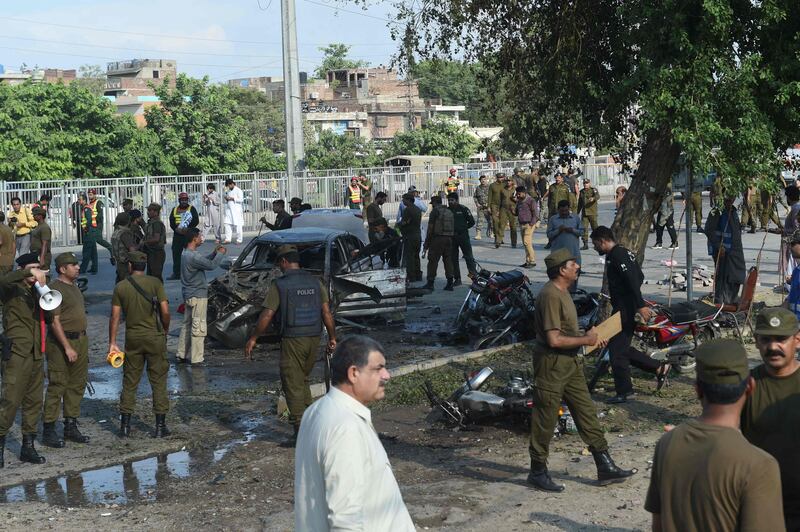At least 25 people were killed and dozens injured in an explosion claimed by the Pakistani Taliban that struck a busy vegetable market in the Pakistani city of Lahore on Monday.
The powerful blast hit a bustling main road in the south of Lahore and blew out windows in nearby buildings.
"A suicide bomber of Tehreek-e-Taliban Pakistan (TTP) used a motorcycle bomb to kill dozens of policemen," TTP spokesman Muhammad Khurasani said.
Initial police investigations suggested it may have been a suicide bomb attack.
"Apparently, according to our initial findings, he was a suicide bomber, who used a motorcycle," said deputy chief of police operations branch, Haider Ashraf, adding that at least 10 police officers were among the dead.
The city's commissioner, Abdullah Khan Sumbul, said the blast targeted police.
Lahore police spokesman Syed Hammad Shah put the toll at 25 dead with 40 injured. Senior local administration official Sumair Ahmad Syed confirmed the death toll, though he put the number of injured at 35.
The area was busy with police at the time because officers had been sent to the market to clear stalls that had illegally spilt onto the road. The market was crowded with shoppers at the time.
Eyewitness Sher Dil, who works at an office close to the site of the explosion, said it blew out the windows of his office building.
"I was in my office when it all happened. It was a deafening blast, which shook the entire Arfa Karim Towers," Mr Dil said.
Pakistan's president, prime minister and army chief all issued statements expressing condolences for the loss of life.
Lahore has been hit by significant militant attacks in Pakistan's more than decade-long war on extremism, but they have been less frequent in recent years.
The last major blast in the city was in March last year, when 75 people were killed and hundreds injured in a bomb targeting Christians celebrating Easter Sunday in a park.
But the country was also hit by a wave of attacks in February this year, including a bomb that killed 14 people in Lahore.
In April, a further seven people were killed in an attack in the city targeting a team that was carrying out the country's long overdue census.
After years of spiralling insecurity, Pakistan's powerful army launched a crackdown on militancy following a brutal attack on a school in late 2014.
More than 150 people, most of them children, died in the Taliban-led assault in the northwestern city of Peshawar — the country's deadliest ever single attack.
It shook a country already grimly accustomed to atrocities and prompted the military to step up an operation in the tribal areas, where militants had previously operated with impunity.
Explosions caused by gas cylinders — which are used for cooking as well as in cars — are also common in Pakistan. A blast in Lahore in February was initially thought to be a militant attack, but turned out to be a gas explosion.
Officials have since been cautious about prematurely confirming the nature of explosions.
Lahore, a city of around six million, is the country's cultural hub and the capital of its most powerful province, Punjab.





